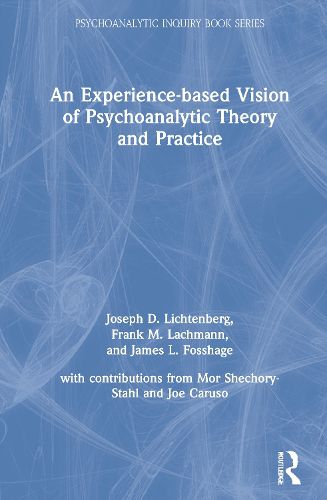Readings Newsletter
Become a Readings Member to make your shopping experience even easier.
Sign in or sign up for free!
You’re not far away from qualifying for FREE standard shipping within Australia
You’ve qualified for FREE standard shipping within Australia
The cart is loading…






An Experience-based Vision of Psychoanalytic Theory and Practice looks at each individual as a motivated doer doing, seeking, feeling, and intending, and relates development, sense of self, and identity to changes that are brought about in analytic psychotherapy.
Based on conceptualizing experience as it is lived from infancy throughout life, this book identifies three major pathways to development and applies Lichtenberg, Lachmann, and Fosshage’s experience-based vision to psychoanalytic psychotherapy. Using detailed clinical narratives and vignettes, as well as organizational studies, the book takes up the distinction between a person’s responding to a failure in achieving a goal with disappointment and seeking an alternative path, or with disillusion and a collapse in motivation.
From the variety of topics covered, the reader will get a broad overview of an experience-based analytic conception of motivation begun with Lichtenberg’s seven motivational systems. This title will be of great interest to established psychoanalysts, as well as those training in psychoanalysis and clinical counselling psychology programs.
$9.00 standard shipping within Australia
FREE standard shipping within Australia for orders over $100.00
Express & International shipping calculated at checkout
An Experience-based Vision of Psychoanalytic Theory and Practice looks at each individual as a motivated doer doing, seeking, feeling, and intending, and relates development, sense of self, and identity to changes that are brought about in analytic psychotherapy.
Based on conceptualizing experience as it is lived from infancy throughout life, this book identifies three major pathways to development and applies Lichtenberg, Lachmann, and Fosshage’s experience-based vision to psychoanalytic psychotherapy. Using detailed clinical narratives and vignettes, as well as organizational studies, the book takes up the distinction between a person’s responding to a failure in achieving a goal with disappointment and seeking an alternative path, or with disillusion and a collapse in motivation.
From the variety of topics covered, the reader will get a broad overview of an experience-based analytic conception of motivation begun with Lichtenberg’s seven motivational systems. This title will be of great interest to established psychoanalysts, as well as those training in psychoanalysis and clinical counselling psychology programs.